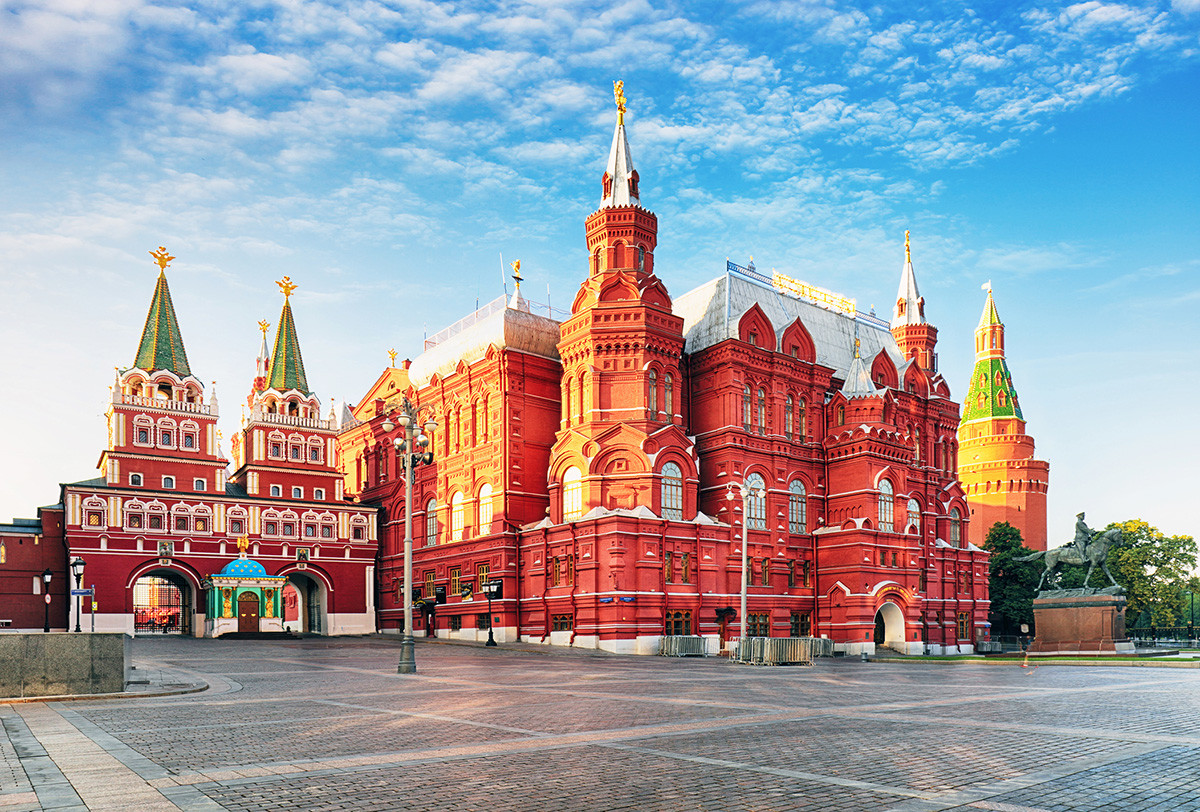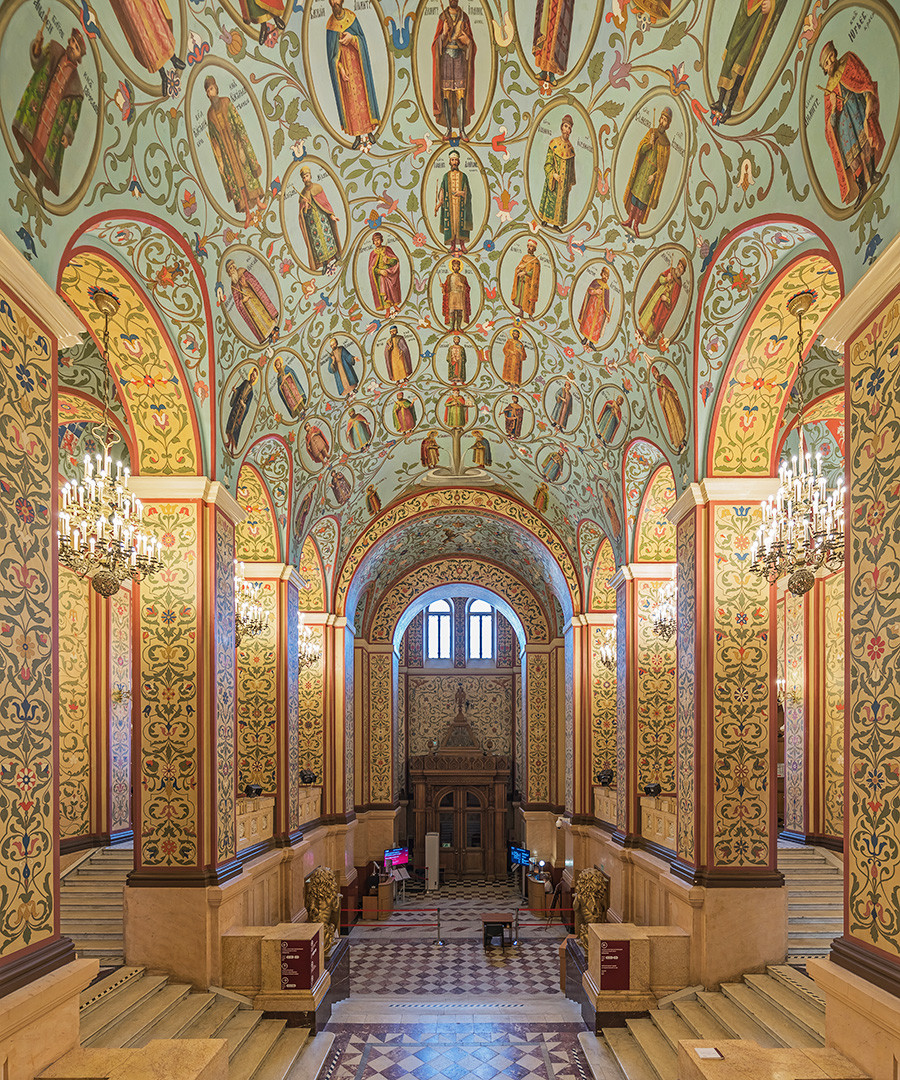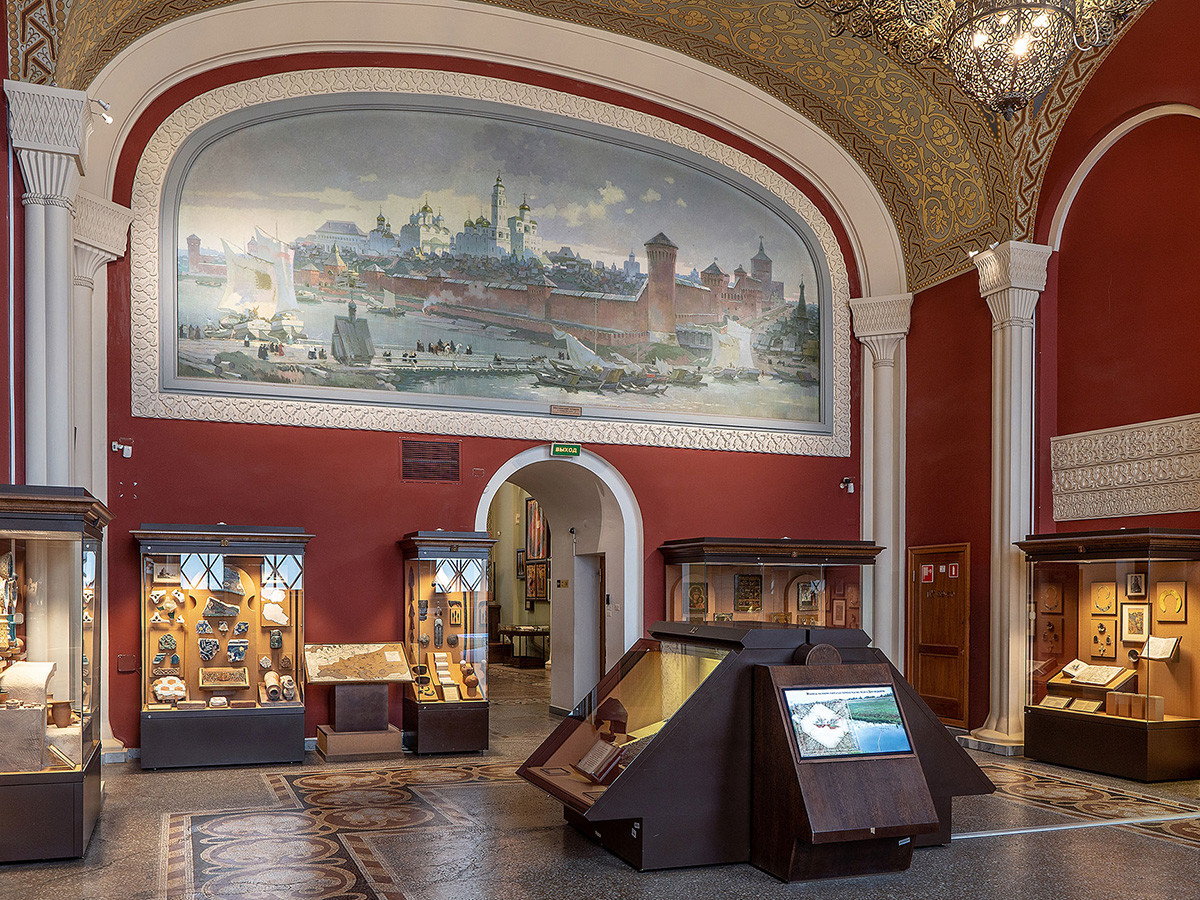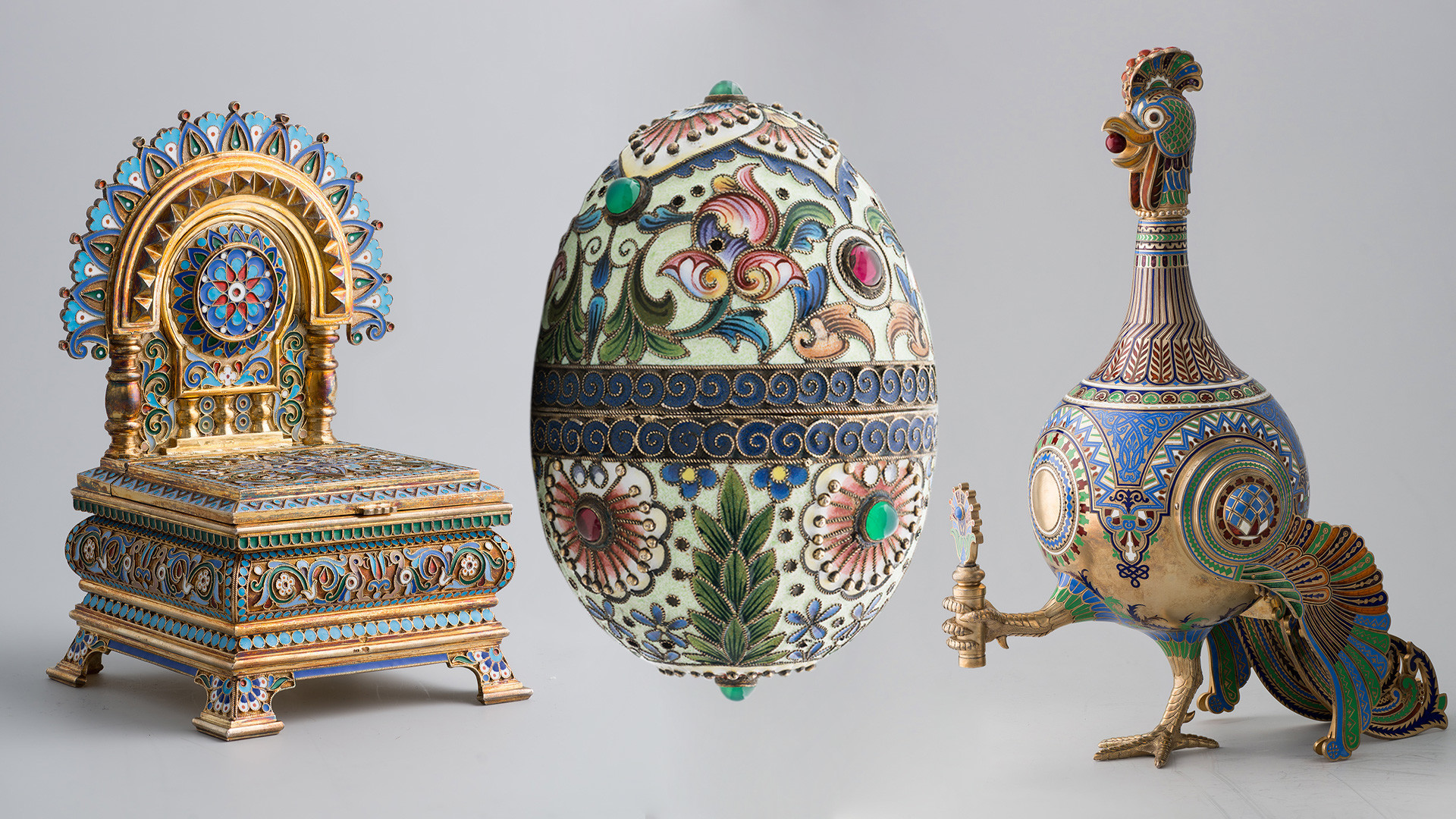
As a tourist coming to Moscow for the first time you might want to come to Red Square, where you’ll find yourself in the epicenter of the capital’s life with its popular entertainment, Christmas and summer markets, GUM department store, and luxury boutiques. Even more important, you’ll find yourself in the epicenter of centuries of Russian history - the Kremlin, Lenin’s Mausoleum, St. Basil’s Cathedral, and more. Everything here has many tales to tell.
In addition, you might want to know more about the events that happened here, by paying a visit to the dark-red building that looks as ancient as the Kremlin itself. Its appearance is misleading, however, because in fact, the building appeared only in the late 19th century, designed in the neo-Russian style so that it wouldn’t look too alien on Red Square.

Interior of the main building of State Historical Museum.
A.Savin/WikiCommonsThe first thing that greets everyone upon entering the State Historical Museum is a huge fresco on the ceiling of the front of the ceremonial hall. On the wall is a genealogical tree of the Romanov dynasty, consisting of 68 portraits of the Russian rulers. Don’t strain your neck staring at it!
This is truly one of the most remarkable items in the museum, and by the way, all Russian kids remember it after their obligatory guided tour and school trip.
There is a curious story how this image appeared here. According to the initial design the museum entrance hall should have been devoted to themes from ancient Russia, but after the imperial family donated funds to make the museum’s construction possible, the founders decided to express their gratitude with this fresco.
While working on the museum’s exhibition concept, the founders argued about what they should focus on: glorious military victories, or items showing how ancient life and households looked like, or maybe paintings showing the most important events in Russia’s history?
In the end, they combined all these together. The leading artists of the time were invited to make designs for the museum’s interior, so when walking around the halls please pay attention to the splendid murals on the walls and ceilings. They all are decorated according to the theme of the particular hall, and their ornaments and arches remind one of a medieval Tsarist palace.

‘Moscow Kremlin in the early 15th century.’
State Historical MuseumSeveral halls are devoted to archaeological findings that tell how people lived on the territory of Russia long before a centralized state was founded. These include Stone Age ceramics, working instruments and first primitive weapons of ancient Siberian tribes.
The museum pays special attention to the pre-Christian history of Russia, featuring pagan symbols, ornamentation and idols. All these tell about the deities of the ancient Slavic faith. The halls are arranged in chronological order so you can follow history from ancient times through the Tatar invasion and the era of Peter the Great, right up to the modern era with its technical progress.
The museum has a huge collection of imperial items, as well as weapons of different epochs, icons and jewelry. Everyone will find something that suits their personal interest.
By the way, since a 19th century visitor to the museum (just like a modern one) could not imagine how people lived in previous centuries , artists were able to visualize it. This is something that you won’t find anywhere else: walls decorated with ornaments and symbolic images of different regions of the country. The famous artist Viktor Vasnetsov, for example, fabulously illustrated the Stone Age.
The hall devoted to the unification of ancient Rus is decorated with a panno ‘Moscow Kremlin in the early 15th century.’

L-R:. Salt shaker. P.A.Ovchinnikov's firm; Easter egg. Rückert's firm; Cockerel' carafe. I.P. Khlebnikov's firm
State Historical MuseumIn addition to its great permanent exposition, the Historical Museum is famous for its temporary exhibitions. Check their website in advance since you never know which great cultural surprise you might catch there. Maybe it will be the famous Chinese Terracotta Army, or maybe it will be the splendid jewelry of imperial court masters, including lesser known works by Karl Faberge.
While the main building is on Red Square, the Historical Museum has several branches nearby, including another red neo-Russian style building that holds The Museum of the history of the War of 1812; the Chamber of Romanov boyars built in late 15th - early 16th centuries, and St. Basil’s Cathedral on Red Square.
If using any of Russia Beyond's content, partly or in full, always provide an active hyperlink to the original material.
Subscribe
to our newsletter!
Get the week's best stories straight to your inbox